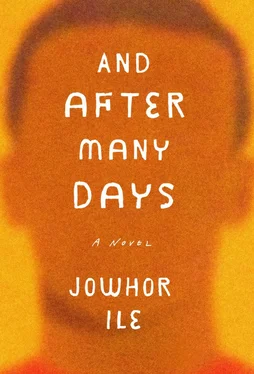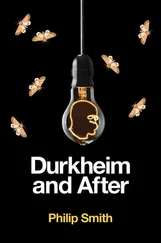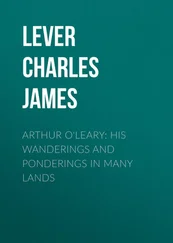One afternoon, without even having thought it, Ajie heard himself say, “Touch and take.” Paul was waiting for them so he could start eating; his right hand was already out of the side basin, glistening with water.
“You should have said it before I started,” Bibi said with vague determination. “You can’t suddenly make a rule in the middle of something.” Reading Ajie’s interference as an indication, she picked the bowl she hadn’t touched yet, certain it was the bigger portion.
“I think it’s a good rule to adopt,” Paul said.
“Stop taking sides,” Bibi said.
“I’m not taking sides. I just said it’s a good rule. Besides, it will apply to all of us,” Paul said, “and why are you so fussy about choosing, anyway? There’s hardly ever any difference.”
Ajie liked it that the rule actually stood a chance. Only his timing was faulted. Touch and take would become standard practice. No one would question it ever again. Ajie smiled. They always tried to finish their eba . Ma didn’t like to see leftovers in the bin, so they would make an effort to eat up all the eba and soup and then carry on leisurely with whatever chunks of meat came with the soup. The meat was always eaten last. If eba was the labor, then meat was the reward. Ajie would come to think of people who ate or touched their meat before finishing the rest of the food as badly brought up.
After lunch, the three of them would sit at the dining table to do their homework, then go outside to play within the compound. Ismaila would sometimes let them out to play at Fola’s house.
When Paul returned from boarding school the first time, he started staying in the room to read. He would lie in bed all afternoon with a book held over his face and come out to the veranda to continue only when it was getting too dark in the room but was too early to turn on the light. He would carry on with his novels while eating, turning pages with his other hand. He also started reading newspapers. One day Bendic was in the parlor having a conversation with Mr. Ifenwa. Ma had gone to the salon to have her hair retouched, and after that, if there was time, she had said to Bendic, she would drop by the market on her way back.
It was a Saturday afternoon, which was to say the worst time on television. Breakfast TV and Wrestlemania ended at ten A.M., and so the rest of the day was a stint of boredom, all sorts of obscure field sports with rules that never made sense to any of the children no matter how hard they tried to follow. One dull game would follow the other until, finally, the miniseries Things Fall Apart came on at eight P.M.
When Mr. Ifenwa arrived, the children vacated the sitting area. They idled and thumbed through encyclopedias where they sat in the dining space, behind the room divider, the long back of the TV, the video player, the video rewinder, designed like a miniature piano, the wooden back of the big vinyl stereo, which was seldom played, and then all the plugs and sockets and a mesh of tangling wires. A tennis game was in play as Bendic talked with Mr. Ifenwa. There was the sound of the ball meeting the racquet and bouncing on the lawn court and a voice that kept going, “Fifteen love,” “Thirty love…”
Paul went to the sitting area and took the weekend Guardian newspaper from the side stool, and as he walked back with it, Bendic said, “Paul, return that when you finish, I haven’t read it yet.”
“Oh.” Paul hesitated for a moment, and Bendic said, “No no no, go on. Just return it once you finish.”
Mr. Ifenwa, who was laughing through a story he had been telling, waved to Paul to go ahead, as if to say, Don’t mind me .
Ajie thought perhaps this was what happened to you when you went to secondary school — something flicked in your brain that made you suddenly enjoy reading newspapers.
“Newspapers are boring, Paul,” Bibi said.
“Sometimes there are important stories in them,” Paul said.
“That’s my point: They are only important stories.”
“And important is boring?” Paul asked without looking up for her answer.
“Well,” she said, twisting a lock of her hair plaits, “all the newspapers I’ve read are boring, and they were supposed to have important news in them.”
“As if you’ve read any,” Ajie said. He had never seen her read a newspaper.
“Look at you,” she said, pointing at him, “you think I’m like you.”
“Look at you. You think I’m like you,” Ajie imitated.
“My friend, get out.”
“My friend, get in.”
“Shut up!”
“Shut down!”
She didn’t get up to slap him, so he didn’t reach out to slap her back.
On Monday, when Marcus came home to pick up Bendic’s lunch, he handed Paul a copy of the day’s Guardian . “Oga say make I give you.”
Bibi looked around in mock wonder and laughed, taking the paper from Paul. Paul took it back from her and looked at Marcus as if expecting further instruction from Bendic on what to do with the paper. Marcus carried Bendic’s lunch from the table, and as he drove off, Paul ran out to the veranda and shouted, “Tell him thank you.”
That was how Ajie got used to seeing Paul read newspapers like a grown-up. Ajie didn’t want to pretend or anything, so he stuck with reading storybooks. The following day, when Bibi joined Paul in the reading of daily newspapers, Ajie just sighed and went outside and started hitting the iron bars on the veranda with a piece of metal until Paul screamed, “Ajie!” and he wanted to scream back “Paul!” but instead kept quiet and went back inside.
Paul was lying on the sofa reading. Bibi was next to him with a section of the paper he had passed on to her. A wind came through the open windows, billowing the curtains. The paper flapped about, and Bibi held it away from her face with one hand. She was reading the horoscope page. She had read out Ajie’s horoscope for the week and now turned over to the next page, where the cartoons and the crossword puzzles were.
Ajie lay there on the couch, looking at his brother and sister. Ma’s deep freezer hummed and whizzed in the kitchen like a fat man sleeping. Ajie looked up at the high ceiling of the parlor, at the cream voile curtains, at the dead gray face of the TV, and then at Bibi, who was biting the top of a pencil, frowning at the crossword. When Paul turned a page, the newspaper rustled like a cookie package and got out of shape. He beat it into place with the flat of his hand, straightened it out, and changed to a sitting position.
“There is a wall gecko above your head,” Ajie said.
Paul looked up. The gecko was flat on the wall, head down. “They don’t bite,” he replied, and continued his reading. “Serves them right,” he said sharply into the open face of the newspaper.
“What happened?” Ajie asked.
It was one of the usual stories they’d heard from their parents: A commissioner had been accused of embezzling government funds. Ajie didn’t feel he had to read it to know what it was about. It was the same story every day, with different names and scenarios. But Paul read it with interest, and when he talked about it later, his normally expressionless face would take up shapes and form a picture of seriousness. He told Ajie that it was probably just the case that the disgraced commissioner had crossed someone higher up, and that was why he was being exposed. “It’s not as if these people care about us,” he said.
Now, this was what Ajie wanted, this way that Paul had of becoming something after he had read about it; this way he had of claiming things for himself. He had joined himself to a we, an us. A corrupt official had been exposed in the papers for misappropriating pension funds, and Paul was expressing betrayal, even anger, about it.
Читать дальше
